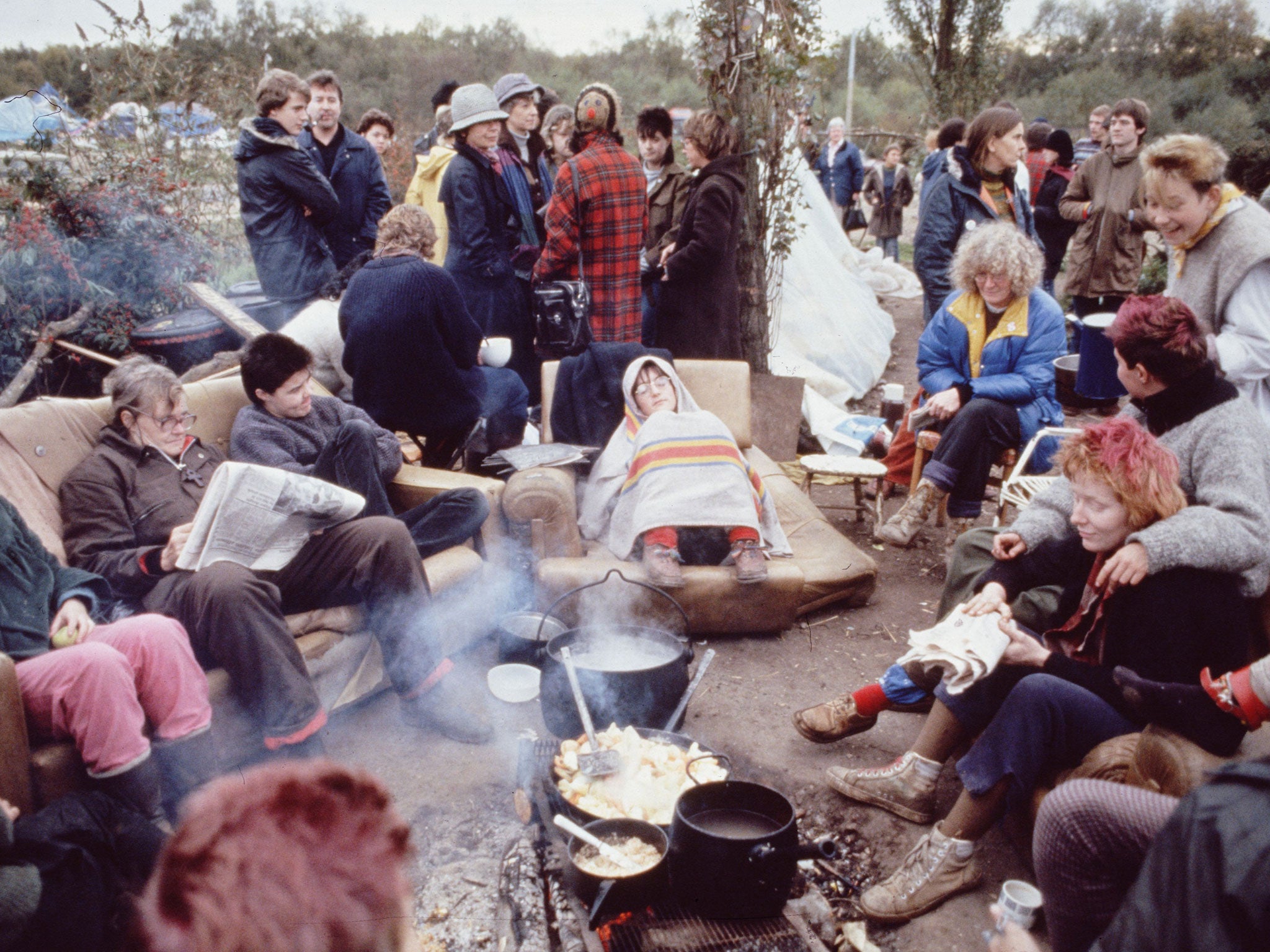Promised You A Miracle: UK 80-82 by Andy Beckett, book review
Our modern, complex country has its roots in the early 1980s, argues a new study

Your support helps us to tell the story
From reproductive rights to climate change to Big Tech, The Independent is on the ground when the story is developing. Whether it's investigating the financials of Elon Musk's pro-Trump PAC or producing our latest documentary, 'The A Word', which shines a light on the American women fighting for reproductive rights, we know how important it is to parse out the facts from the messaging.
At such a critical moment in US history, we need reporters on the ground. Your donation allows us to keep sending journalists to speak to both sides of the story.
The Independent is trusted by Americans across the entire political spectrum. And unlike many other quality news outlets, we choose not to lock Americans out of our reporting and analysis with paywalls. We believe quality journalism should be available to everyone, paid for by those who can afford it.
Your support makes all the difference.Six years ago Andy Beckett wrote a highly praised evocation of the 1970s entitled When The Lights Went Out. This sequel might be titled When They Came On Again – or, more accurately, When They Began To Come On, since it focuses just on the years 1980 to 1982. His thesis is that this was the seminal period when all sorts of pent-up energies were released which over the past 30 years have transformed Britain from a grey, run-down country, resigned to failure, into "the more outward-looking, market-driven, materialistic, mercurial, energetic and colourful, lonely and cruel, charismatic and polarised" country we inhabit today.
But this is not just another celebration, nor a critique, of the triumph of Thatcherism. Yes, the free-market counter-revolution boldly instigated by the new Tory government – monetarism, the abolition of exchange controls and the refusal to go on propping up decaying industries – was a large part of it. But it was only a part. Beckett brilliantly highlights how many other things were stirring in those early years of the decade, unconnected with the government or actively opposed to it, which contributed to a remarkable recovery of national confidence.
From the narrow perspective of Westminster politics, 1981 was the worst year of the Thatcher government, when unemployment and inflation were both soaring, Maggie was the most unpopular Prime Minister ever and riots spread from Brixton and Toxteth to cities and towns all round the country.
But 1981 was also the year of the Charles and Diana royal wedding; the year of "Botham's Ashes", when brainy Mike Brearley and beefy Ian Botham turned certain defeat into stunning victory over the Australians; and the year of Chariots of Fire, another inspiring story of sporting triumph amazingly echoed by the world-beating rivalry of Sebastian Coe and Steve Ovett. Even British Leyland managed to come up with a successful new model, the Metro, launched as "a British Car to Beat the World". All these helped foster a new mood of flag-waving patriotism well before the Falklands war.
Thatcherism inspired a new energy among its opponents too. The SDP was launched in March 1981: it failed to break the mould but it brought a lot of fresh thinking into politics which paved the way for New Labour. Two months later the 35-year-old Ken Livingstone won control of London; his cheeky regime was crudely closed down after four years, but the "loony left" causes it promoted – feminism, anti-racism, gay equality, peace in Northern Ireland – are all today accepted orthodoxy. Likewise the Greenham Common women's peace camp, which began in September 1981, left a legacy which could still be felt in opposition to the Iraq war.
1981 also brought innovations in music, fashion (epitomised by Vivienne Westwood) and television: Channel 4 was set up that year to break the BBC/ITV duopoly by commissioning programmes from small independent production companies. The creative people behind these developments almost all saw themselves as anti-Tory and viscerally anti-Thatcher. Yet as many of them now admit, they both flourished in and helped to create the freer, more informal and diverse economy which she promoted. In short they became capitalists or, as Beckett calls them, "Secret Thatcherites".
Beckett's gripping mixture of contemporary history and vivid reportage is informed by well-chosen interviews with key players of the time. There is also the occasional personal memory of how these events looked to an intelligent 12-year-old. The title is a 1982 track by Simple Minds; his Epilogue asks the question "Whose Miracle?"
John Campbell's 'Roy Jenkins: A Well-Rounded Life' is published by Vintage, £14.99
Join our commenting forum
Join thought-provoking conversations, follow other Independent readers and see their replies
Comments